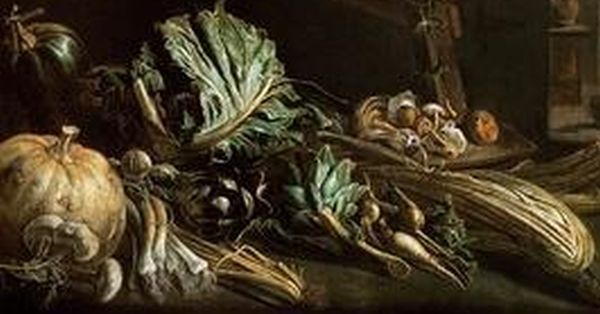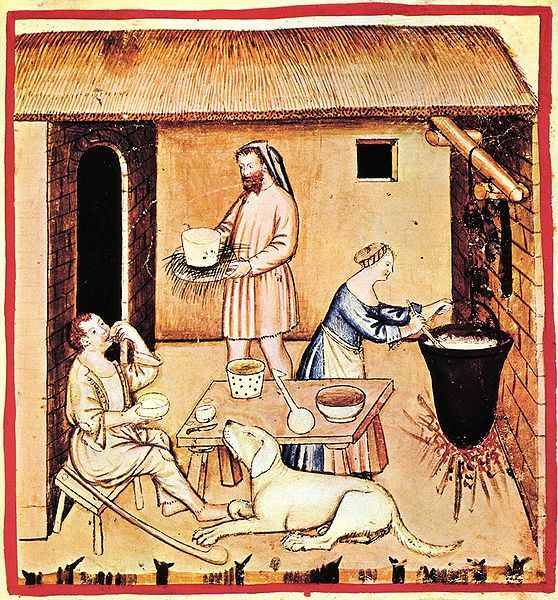Lupercalia or Valentine's Day?
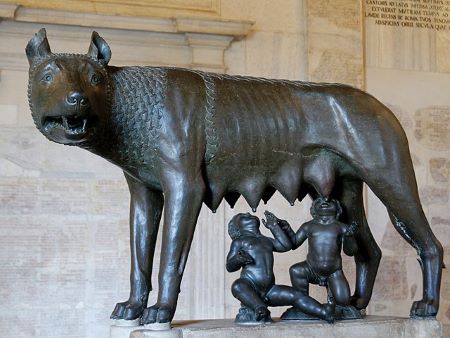
Valentine is a figment of imagination of Christian origine. As usual, our festive days are rooted in pre-Christian traditions. As is the case with Valentine. We must travel back in time to the Roman Lupercalia festival. Are we actually celebrating the wolf on this day?
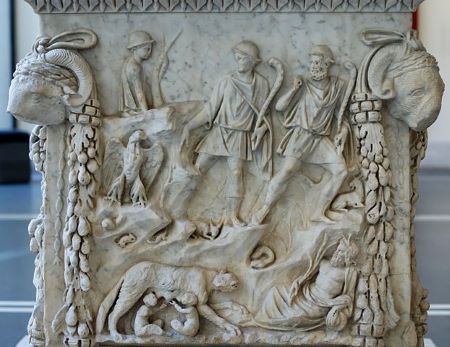
The word Lupercalia is related to the word ‘wolf’, lupus in Latin. The Roman author Jusinus tells us that it's dedicatd to Lucaeian god Pan, which the Romans called Lupercus: a wild, naked god with a belt of goatskin. The statue of this god was places in the cave where - as tradition goes - the founders of Rome Romulus and Remus where nursed by a female wolf.
Lupercalia took place mid-february and according to Ovid's Metamorphosis the legend of king Lykaon (Wolfman), of Arcadia, who ruled in the time that the first humans walked the earth. What was called The Iron Age 'when honour disappeared and destructive powers ruled'. "The land that first belonged to all people, just like sunlight and air does, was bordered off by spying scouts. They not only demanded all the food the rich earth delivered, but also dived deep into the bowels of the earth and took all the richess that was hidden in the shade of the Styx'. Richess that incites people to crime."
Ovids vision on the creation of the world is fascinating, read about it here: https://www.poetryintranslation.com/PITBR/Latin/Metamorph.php#anchor_Toc64105458
Fertility
Actually, we're talking about fertility rituals, as were and are ubiquitous in agricultural societes. The festival was provided with a Roman flavour. There was lots of wine, priests sacrificed a goat and a dog, women who wanted to get pregnant were whipped with a leather thong, which would have a positive effect on this proceedings. There also was a lottery where young man could draw the name of a woman, resulting in sex and hopefully in pregnancy. Vestal virgins offered muffins and cup cakes and everybody had a good time. The young men jogged about the hill, return to the cave and have - no doubt - more booze.
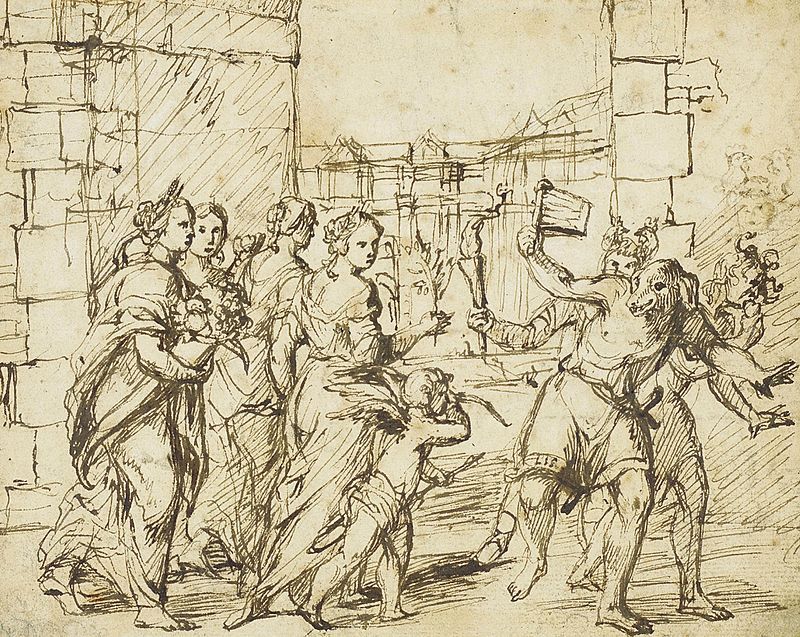
Lupercalia festival belongs to Italy and Gaul, inscriptions from Velletri (Velitrae), Palestrina (Praeneste) and Nîmes (Nemausus) refer to the festival. The wolf ispossible part of this festival since prehistoric times. Read more about this here: https://ralphhaussler.weebly.com/wolf-mythology-italy.html
Valentine
The celebration of Lupercalia was obviously so popular that even in an already Chritianised Rome the festival was a must go to. Only pope Gelasius I banned this heathenish practices in the 5th century, though the Roman Senate uttered loud protetsts, because tradition, and health and safety.
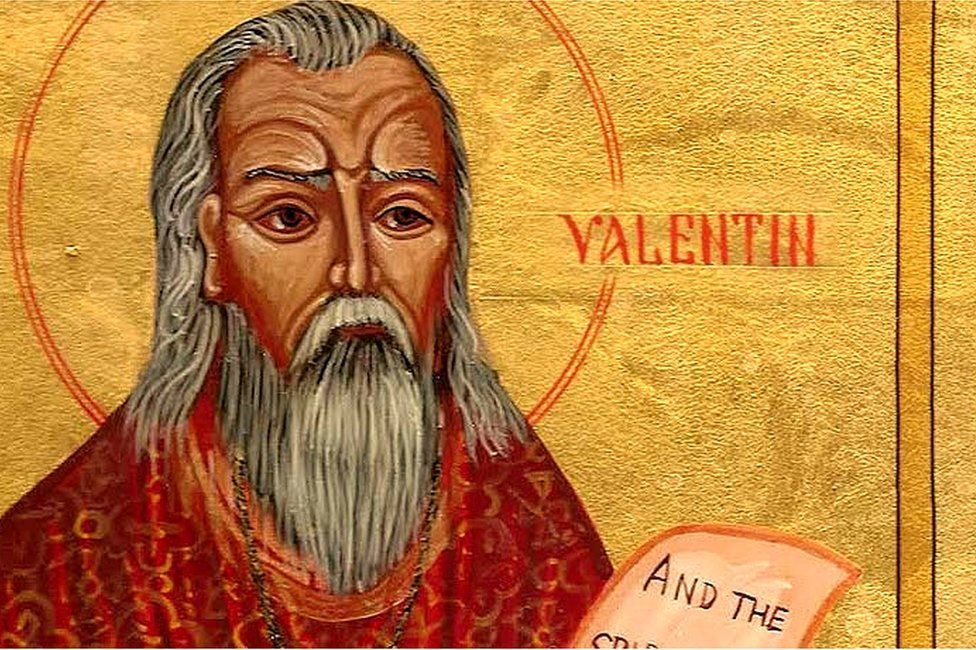
The Roman-Catholic church identifies at least two saint Valentines, possibly even ten. But these two were both murdered in the third century. Pope Gelasius I thus banned the wolf and replaced it with Valentine. The connection with romantic love is probably a Renaissance myth.
Banquet
Usually the sacrificed animals at festivals was served at dinner. But in the case of a dog I question that and a goat is also not so much in the culinary picture in the Roman cuisine. Maybe some of the flesh of the goat made an appearence, with the Vestal cookies as a side dish. Nobody stops you from celebrating Valentine dinner with pink champagne and cup cakes, but you can also prepare a real Roman dinner. Inspiration and instructions here: https://www.britishmuseum.org/blog/cook-classical-feast-nine-recipes-ancient-greece-and-rome
